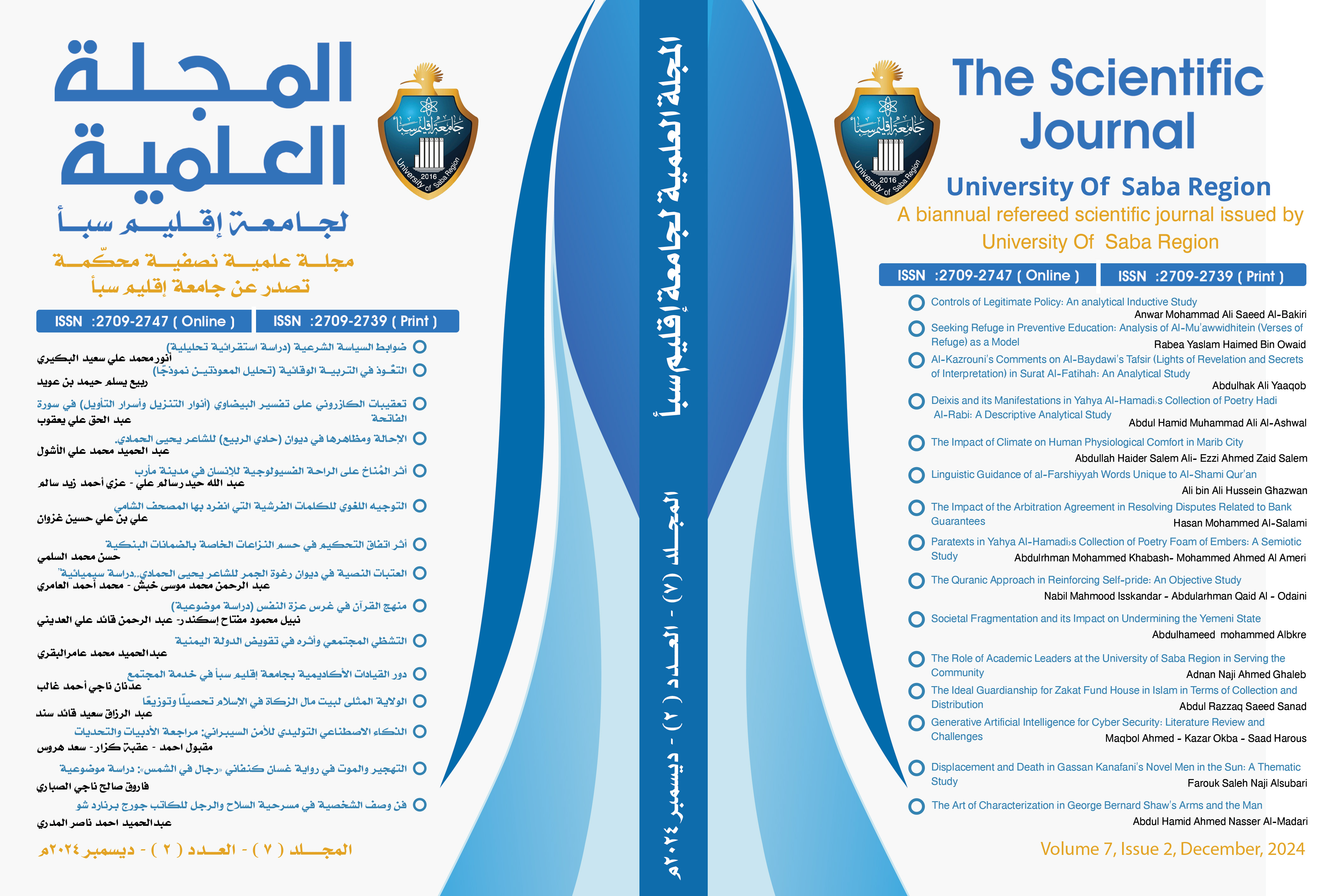Generative Artificial Intelligence for Cyber Security: Literature Review and Challenges
DOI:
https://doi.org/10.54582/TSJ.2.2.109Keywords:
Generative AI, Cyber Security, Artificial IntelligenceAbstract
The digital transformation era has witnessed substantial technological advancements, resulting in significant global changes. However, the increasing reliance on interconnected systems and data-driven processes emphasizes the criticality of cybersecurity. This paper explores the utilization of Generative Artificial Intelligence (Generative AI) within the domain of cybersecurity, underscoring its capacity to augment threat detection, facilitate anomaly identification, and optimize incident response. Through an extensive evaluation of existing scholarly work and methodologies, the investigation delineates principal applications such as intrusion detection, malware analysis, and the synthesis of artificial data for training objectives. The results indicate that Generative AI has the potential to markedly enhance the precision of cybersecurity systems while concurrently automating repetitive processes, thus improving overall operational efficacy. Nevertheless, obstacles persist, including susceptibility to adversarial attacks, ethical dilemmas, and the requirement for considerable computational resources. This research offers novel perspectives on how Generative AI may be employed to confront intricate cybersecurity challenges, highlighting the necessity of reconciling innovative applications with robust defensive strategies. This research presents pathways for future investigations into secure and ethical applications of Generative AI technologies in cybersecurity.
Downloads
Published
How to Cite
Issue
Section
License
Copyright and Licensing
This journal publishes all scientific materials under the Creative Commons Attribution 4.0 International (CC BY 4.0) , license, which grants you the following permissions:
You are free to:
- Share — copy and redistribute the material in any medium or format for any purpose, even commercially.
- Adapt — remix, transform, and build upon the material for any purpose, even commercially.
- The licensor cannot revoke these freedoms as long as you follow the license terms.
Under the following terms:
- Attribution — You must give appropriate credit , provide a link to the license, and indicate if changes were made . You may do so in any reasonable manner, but not in any way that suggests the licensor endorses you or your use.
- No additional restrictions — You may not apply legal terms or technological measures that legally restrict others from doing anything the license permits.
Notices:
You do not have to comply with the license for elements of the material in the public domain or where your use is permitted by an applicable exception or limitation .
No warranties are given. The license may not give you all of the permissions necessary for your intended use. For example, other rights such as publicity, privacy, or moral rights may limit how you use the material.











